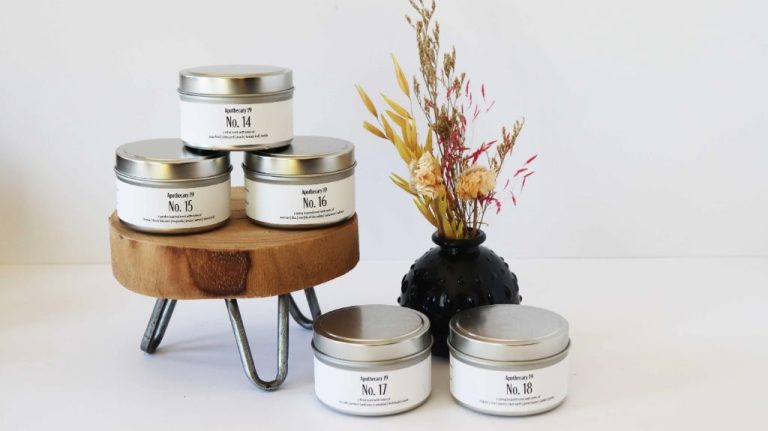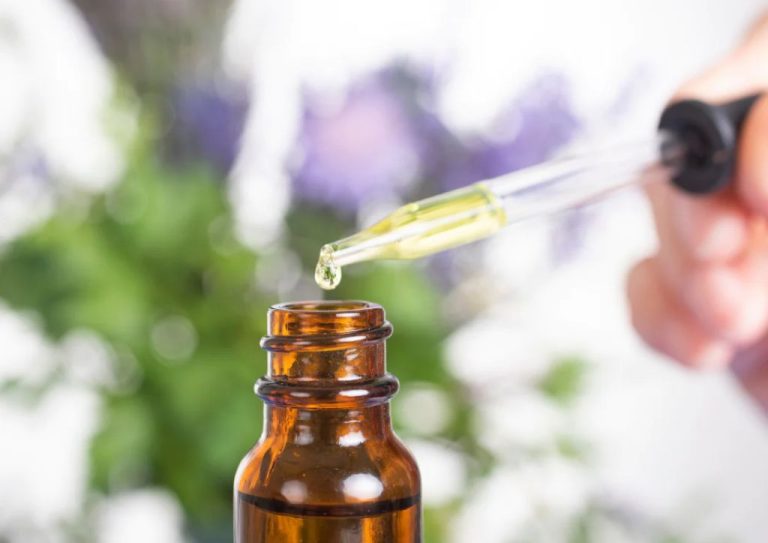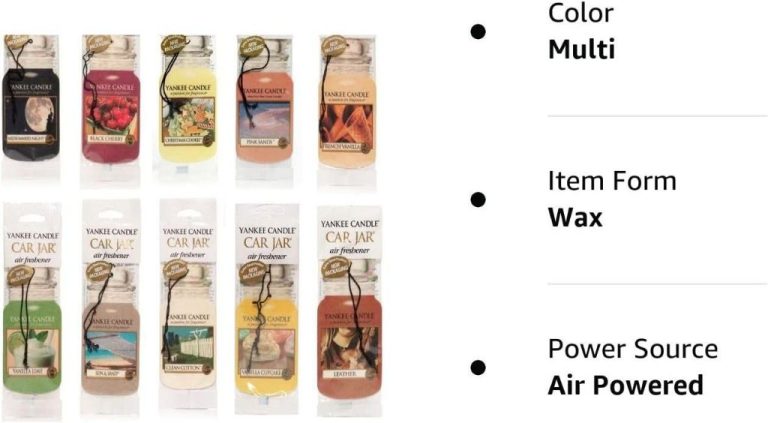Is Cinnamon Oil The Same As Cinnamon Extract?
What is Cinnamon Oil?
Cinnamon oil is an essential oil extracted from the bark, leaves, or twigs of cinnamon trees. The oil contains the compound cinnamaldehyde which gives cinnamon its flavor and aroma (1).
There are two main types of cinnamon trees used to produce cinnamon oil: Cinnamomum verum (also called Ceylon cinnamon) and Cinnamomum cassia (also called Chinese cinnamon). Ceylon cinnamon oil contains 50-63% cinnamaldehyde, while Chinese cinnamon oil contains 90-95% (2).
To produce cinnamon oil, the bark and leaves of the cinnamon tree are put through a process of steam distillation. This process extracts the volatile plant compounds, including cinnamaldehyde, eugenol, and linalool, from the plant material (3).
In addition to cinnamaldehyde, the main chemical components of cinnamon oil include:
- Eugenol – gives clove-like aroma
- Linalool – provides floral notes
- Benzyl benzoate – sweet and balsamic odor
- Cinnamyl acetate – confers fruity, cinnamon notes
Sources:
1. https://www.merriam-webster.com/medical/cinnamon%20oil
2. https://www.healthline.com/health/cinnamon-oil
3. https://www.sciencedirect.com/topics/agricultural-and-biological-sciences/cinnamon-oil

What is Cinnamon Extract?
Cinnamon extract is a concentrated flavoring derived from ground cinnamon bark that contains key compounds and oils that give cinnamon its distinct smell and flavor (Livestrong). The extract is made by soaking cinnamon bark powder in alcohol or purified water for several weeks, allowing the volatile oils and other compounds to dissolve into the solvent. The mixture is then filtered to remove the solid particles, leaving behind a potent “essence of cinnamon” in the extract liquid (NIH).
The main chemical components of cinnamon extract include cinnamaldehyde, cinnamyl acetate, eugenol, and other oils and phenolic compounds. Cinnamaldehyde is responsible for approximately 90% of the flavor and aroma of cinnamon, providing a sweet, spicy flavor (NIH). Together, these compounds give cinnamon extract a very concentrated, aromatic cinnamon flavor that is much stronger than regular ground cinnamon.
Key Differences
Cinnamon oil and cinnamon extract have some notable differences in how they are produced, their chemical makeup, and their common uses:
Cinnamon oil is produced by steam distilling the bark, leaves or twigs of the cinnamon plant to extract the essential oils. It takes a large quantity of plant material to produce a small amount of oil. Cinnamon extract starts with cinnamon essential oil, which is then diluted in alcohol along with added flavorings and preservatives. So cinnamon extract contains cinnamon oil plus other ingredients.1
The key chemical components of cinnamon oil are cinnamaldehyde, eugenol, and linalool, which give it a very concentrated, spicy aroma and flavor. Cinnamon extract has lower concentrations of these compounds due to the dilution, giving it a milder cinnamon taste.2
Cinnamon oil is commonly used as an essential oil for aromatherapy, skin care, and household cleaning products. The concentrated flavor makes it useful for some food flavorings. Cinnamon extract’s milder taste makes it more suitable for cooked goods like pastries, candies, and beverages.
Flavor and Aroma
Cinnamon oil and cinnamon extract both have a warm, spicy, sweet flavor and aroma, but there are some key differences in their profiles:
Cinnamon oil is very concentrated and intense, often described as “hot” and “fiery.” It has a strong, sharp cinnamon flavor dominated by the chemical cinnamaldehyde. Cinnamon oil provides a very bright, potent cinnamon taste and smell.
Cinnamon extract has a more well-rounded, nuanced cinnamon flavor. While still concentrated, cinnamon extract often has subtle notes of clove, nutmeg, and other spices. The flavor is not as piercingly “hot” as cinnamon oil. Cinnamon extract provides a richer, more complex cinnamon taste.
In summary, cinnamon oil has a very focused, powerful cinnamon punch, while cinnamon extract delivers a more subtle, multilayered cinnamon essence. The choice between the two depends on the specific flavor profile desired in a recipe or application.
Culinary Uses
Both cinnamon oil and cinnamon extract are used to add flavor to a variety of foods and beverages. However, there are some key differences in how they are used in cooking and baking.
Cinnamon extract is commonly used in baked goods like cakes, cookies, breads, muffins, and pastries. It provides a warm cinnamon flavor without altering the texture or appearance of batters and doughs. Cinnamon extract can also be used in fillings, frostings, sauces, oatmeal, coffee, and other beverages (Source).
Cinnamon oil has a very concentrated, potent cinnamon flavor, so it is used more sparingly in foods. It is commonly used to add cinnamon flavor to candies, ice creams, chocolate, and chewing gum (Source). Cinnamon oil is also used to flavor syrups, coffee, tea, and alcoholic beverages. Only a few drops are needed to provide intense cinnamon taste.
Both cinnamon extract and cinnamon oil should be added in small amounts during the final stages of cooking, as extended heating can dissipate the volatile flavor compounds. They impart a spicy, warming cinnamon flavor without adding volume or texture.
Health Benefits
Both cinnamon oil and cinnamon extract have potential health benefits, many attributed to their key active component – cinnamaldehyde. However, there are some differences in their health effects.
Cinnamon oil is rich in cinnamaldehyde and eugenol which give it powerful antimicrobial and antioxidant properties. Test tube studies show cinnamon oil can inhibit the growth of certain bacteria and fungi. It’s also been researched for improving insulin sensitivity, reducing inflammation, and protecting brain function.
Meanwhile, cinnamon extract contains lower concentrations of cinnamaldehyde but still provides antioxidant and anti-inflammatory effects. Human studies indicate it may help lower fasting blood sugar levels in those with diabetes. Cinnamon extract supplements have also been linked to decreasing LDL cholesterol and triglycerides.
Overall, cinnamon oil seems more potent due to its higher cinnamaldehyde content. However, both can offer health benefits, especially for blood sugar control, heart health, and immunity.
Other Uses
Besides being used for cooking and flavoring foods, cinnamon oil and extract have a variety of other uses. Cinnamon oil is commonly used in aromatherapy. The warm, spicy aroma of cinnamon oil is believed to uplift mood, relieve stress, and promote relaxation [1]. Some research suggests cinnamon oil may boost brain function and help improve focus when inhaled [3].
Both cinnamon oil and cinnamon extract are used in the cosmetic industry for their antioxidant and antimicrobial properties. They are added to products like lotions, soaps, toothpastes and mouthwashes. Some research shows cinnamon extracts and oils may benefit skin health by reducing acne, soothing rashes, and promoting wound healing [2].
Industrially, cinnamon oil and extract are used as natural food preservatives and added to processed foods and beverages. Cinnamon is also used in the manufacturing of some perfumes and candles. It’s also commonly used as a natural insect repellent and pest deterrent for crops and gardens.
Availability and Cost
Cinnamon oil and cinnamon extract can both be purchased from grocery stores, spice shops, and online retailers like Amazon. However, cinnamon oil tends to have more limited availability than cinnamon extract.
Cinnamon extract can be readily found in the spice aisle of most grocery stores, sold by brands like McCormick. It’s also available from online spice retailers like Penzeys Spices. Cinnamon oil may be harder to find in brick-and-mortar shops, but can be purchased online from specialty retailers like LorAnn Oils.
In terms of cost, cinnamon extract tends to be more affordable for everyday cooking use. A 4 oz bottle of cinnamon extract costs around $5-10 from grocery stores. Comparatively, a 1 oz bottle of cinnamon oil from specialty retailers costs $9-15. So cinnamon oil can cost over 10 times more per ounce compared to cinnamon extract.
Cited from: Amazon, LorAnn Oils
Safety and Side Effects
Both cinnamon oil and cinnamon extract are considered safe when used appropriately. However, there are some safety precautions to be aware of:
Cinnamon oil is very concentrated and can cause skin irritation or allergic reactions if applied directly to skin. It’s important to always dilute cinnamon oil with a carrier oil before use (source).
Consuming high amounts of cassia cinnamon may be toxic due to its coumarin content. Moderation is key, with recommended doses of 0.5-1 gram of cassia cinnamon per day (source). Ceylon cinnamon contains much lower levels of coumarin.
Potential side effects of cinnamon include mouth sores, low blood sugar, diarrhea, and vomiting. Those with liver disease should avoid high doses of cinnamon (source).
Pregnant women should not take cinnamon oil, as it may stimulate the uterus. For any serious medical conditions, consult your doctor before using cinnamon supplements (source).
Overall, cinnamon as a spice is safe when consumed in normal food amounts. But concentrated cinnamon oil or extracts may require more caution.
Summary
Cinnamon oil and cinnamon extract both provide the flavor and aroma of cinnamon, but they are produced differently and have some key differences. Cinnamon oil is highly concentrated and made from cinnamon bark, while cinnamon extract is a diluted solution made from distilling cinnamon in alcohol.
Cinnamon oil has a very potent, spicy flavor and is often used sparingly in recipes and products. Cinnamon extract has a milder cinnamon taste more suitable for baked goods and beverages. Both can provide health benefits, but cinnamon oil is considered more potent with higher levels of the antioxidant cinnamaldehyde. However, cinnamon oil may also cause skin irritation for some.
In summary, cinnamon oil gives you pure concentrated cinnamon flavor and potency, while cinnamon extract is more versatile for everyday use and cooking. Cinnamon oil is preferred when a very strong cinnamon aroma or flavor is needed, while the extract works well in most recipes calling for ground cinnamon. Evaluate your intended use and taste preferences when deciding which to use.





